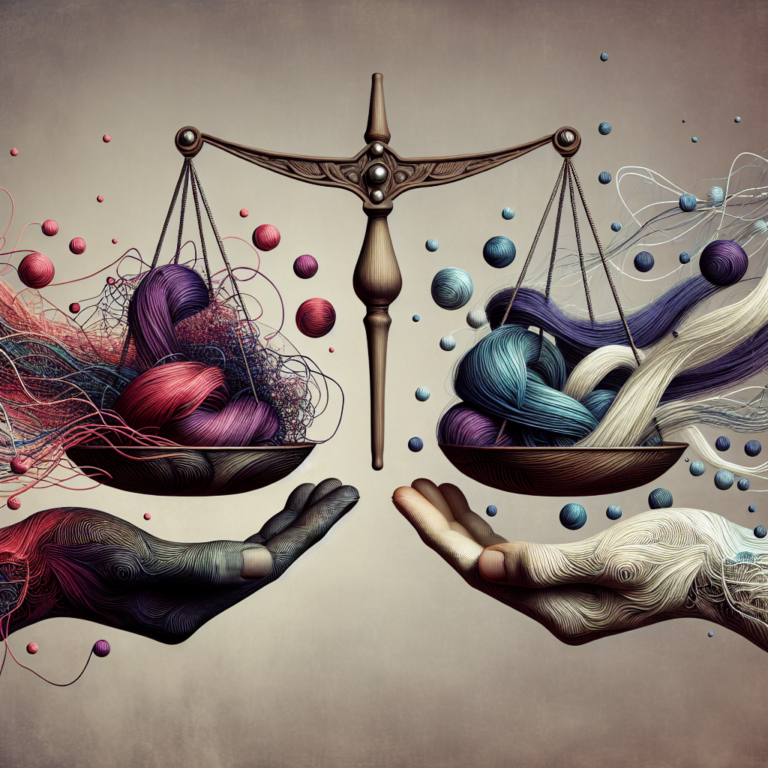Karma is a term that has woven its way into modern vernacular, often used to imply that good deeds will be rewarded and bad actions will be punished. However, the concept of karma is rooted in ancient philosophies and spiritual beliefs, and its interpretation can vary widely across different cultures and religions. In this article, we’ll explore the most common myths surrounding karma and shed light on the true essence of this profound principle.
What is Karma?
Before debunking the myths, it is essential to understand what karma truly means. Originating from Buddhism and Hinduism, karma literally translates to “action” in Sanskrit. It encompasses the idea that all actions have consequences, whether they manifest in this life or future rebirths. In essence, karma is a moral law of cause and effect whereby intentional actions influence one’s future circumstances.
Myth 1: Karma is a Form of Punishment
One of the most pervasive myths about karma is the idea that it serves as a form of punishment. This understanding transforms karma into a vengeful force, suggesting that if a person commits wrongful acts, they will be “punished” in a retributive manner. However, karma is not about divine retribution; it is more accurately a principle of moral accountability.
Reality Check
Karma operates on the premise of natural consequences. The focus is on personal development rather than punishment. If someone engages in harmful behavior, they may experience negative consequences, but those are not imposed by a higher power; they are simply a reflection of their actions and choices.
Myth 2: Karma is Instantaneous
Another common misconception is the belief that karma operates immediately—good deeds are rewarded right away, while bad actions lead to swift backlash. This notion is often promoted in popular culture, creating the idea of instant justice.
Reality Check
Karma often unfolds over time. The cycle of cause and effect can span across lifetimes. For example, the impact of a single action may not become evident until years down the line. Therefore, while someone may commit a wrongful act without facing immediate repercussions, it does not mean that they will escape the effects of their actions indefinitely.
Myth 3: Karma is Fatalistic
Some people view karma as a predetermined fate, leading to the belief that our lives are entirely determined by past actions. This perception creates a sense of helplessness, suggesting that no matter what we do, we are eternally trapped by our karma.
Reality Check
While past actions may influence our current circumstances, karma is not a fixed destiny. We have the power to shape our lives through the decisions we make in the present. Every moment offers an opportunity to create new karma, cultivate positive actions, and change the trajectory of our lives.
Myth 4: Only Negative Actions Create Bad Karma
Many individuals believe that only negative deeds result in bad karma, neglecting the fact that inaction or indifference can also lead to undesirable consequences. It is easy to overlook how our choices—or lack thereof—affect our karma.
Reality Check
Karma encompasses all actions and intentions. Failing to act when one has the ability to help can generate negative karma just as fully as engaging in harmful practices. The principle of karma encourages us to be mindful of our actions, emphasizing the importance of positive intentions and compassion in our everyday lives.
Myth 5: Karma is Only About Individual Actions
Another prevalent myth posits that karma is solely an individual experience. This understanding can create a divide, leading people to think that they alone are responsible for their entire world of experiences.
Reality Check
While individual karma plays a significant role, it is crucial to understand that collective karma exists as well. Our actions affect not just ourselves, but others and the broader environment. The sum of individual actions within communities can create a larger karmic landscape that influences everyone involved.
Myth 6: Karma Works in a Linear Time Frame
Many people think of karma as a linear system—do good, get good; do bad, get bad. This limited interpretation does not capture the multifaceted nature of karma.
Reality Check
Karma operates in cycles and is often nonlinear. A single action can ripple throughout time, influencing various aspects of our lives in complex ways. One kind gesture may reverberate, impacting multiple people and situations in the future, much like a stone tossed into a pond creates expanding ripples.
Myth 7: Good Intentions Alone Erase Bad Karma
There is a belief that good intentions can cancel out past wrongs, but this perspective oversimplifies karma and moral responsibility.
Reality Check
While good intentions are essential and can influence the outcome of our actions, they do not erase past negative actions. True understanding of karma requires acknowledgment of past mistakes, learning from them, and striving to act positively going forward.
Conclusion
Karma is a nuanced and enriching concept that invites us to reflect on our actions and their potential consequences. By debunking these common myths, we allow ourselves to embrace karma as a tool for personal growth and moral accountability rather than a mechanism of punishment or mere fate. Understanding karma in a holistic manner guides us towards a life marked by mindfulness, compassion, and ethical action.
FAQs
What is karma in simple terms?
Karma, derived from Sanskrit, means “action.” It refers to the principle that every action has consequences—good or bad—affecting our future experiences.
Does karma only apply to past lives?
Karma operates in both this life and potential future lives. While past actions influence current circumstances, every action you take today contributes to your overall karma.
Can karma be changed?
Yes! Our actions and intentions in the present have the power to alter our karmic path. Engaging in good deeds and making ethical choices can create positive outcomes.
Is karma the same in Buddhism and Hinduism?
While the concept of karma exists in both traditions, its interpretations differ. In Buddhism, karma is more closely associated with intention, whereas in Hinduism, it often connects with the cycle of rebirth.
How do I cultivate good karma?
To cultivate good karma, focus on intentional, compassionate actions. Engage in kindness, help others, and maintain a positive attitude, recognizing that your actions have the power to create ripples of good in the world.
It seems like your message got cut off. Can you please provide more details or clarify what you need a prompt for? Whether it’s writing, brainstorming ideas, or something else, I’m here to help!, #Karma #Uncovered #Debunking #Common #Myths, #Karma #Uncovered #Debunking #Common #Myths, 1735083688, karma-uncovered-debunking-the-most-common-myths





